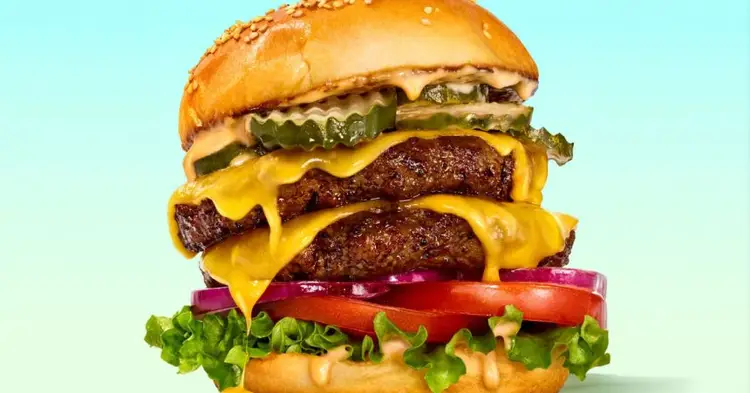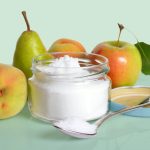“You’re being lied to about ‘ultra-processed’ meals,” reads a latest Vox headline. The article explores a research broadly reported on over the summer time linking ultra-processed meat substitutes to an elevated threat of coronary heart assaults and strokes. “Vegan faux meats linked to coronary heart illness, early dying,” wrote the New York Submit.
For a food plan typically linked to decreased dangers for coronary heart illness, the findings had been surprising. And, in line with Vox, unfaithful: “Simply 0.2 p.c of energy throughout the pattern got here from meat options. The majority of the plant-based ultra-processed energy as an alternative got here from what the authors describe as ‘industrialised packaged breads, pastries, buns, and muffins,’ and ‘biscuits,’ higher identified within the US as cookies—meals which have little to do with plant-based meats or different specialty vegan merchandise. The brand new era of vegan burgers, together with Not possible and Past burgers, didn’t but exist when the information was collected between 2009 and 2012.”
College of São Paulo researcher Fernanda Rauber, lead writer of the research advised Vox that given the small caloric contribution, the researchers can’t draw “any significant conclusions about plant-based meat options particularly.”
Claims about coronary heart assault threat don’t align with the American Coronary heart Affiliation (AHA) both. In 2023, the group awarded its Coronary heart-Test certification to Past Meat’s Past Steak, marking the primary time a plant-based meat product obtained this endorsement. This certification signifies that Past Steak meets the AHA’s dietary standards for heart-healthy meals, together with concerns for saturated fats, ldl cholesterol, and sodium content material. Later that yr, Not possible Meals’ Not possible Beef Lite additionally earned the Coronary heart-Test certification, turning into the second plant-based meat product to obtain this recognition.
Nonetheless, ultra-processed meals (UPFs) are underneath growing scrutiny for his or her potential well being dangers—but public understanding of what constitutes “ultra-processed” stays murky. The time period, coined by vitamin researchers, categorizes meals based mostly on their stage of business processing. The researchers on the College of São Paulo in Brazil, developed the Nova classification system, which categorizes meals into 4 teams based mostly on the extent and objective of their processing. Launched in 2009, it goals to assist customers and policymakers perceive the dietary impression of ultra-processed meals (Group 4) in comparison with minimally processed or entire meals (Group 1).
However these broad classifications usually group healthful plant-based proteins alongside genuinely unhealthy choices, creating confusion for customers. This misrepresentation underscores the necessity for higher public understanding of minimally processed meals versus UPFs. Whereas the Nova classification system affords some readability, its broad groupings usually miscategorize long-standing vegan staples like tofu and tempeh as UPFs. Harvard vitamin skilled Walter Willett noticed:
“A few of the plant-based options to meat are fairly a bit more healthy, it appears to be like like, than the precise beef or pork that persons are consuming.”
The Nova classification
The Nova classification system divides meals into 4 classes based mostly on their stage of processing:
Group one contains entire or minimally processed objects similar to contemporary vegetables and fruit, entire grains, legumes, nuts, milk, and unprocessed cuts of meat.
Group two includes “processed culinary components,” like oils, butter, lard, sugar, and salt, sometimes utilized in cooking and meals preparation.
Group three encompasses processed meals, that are made by combining objects from teams one and two, similar to baked breads, home made desserts, and sautéed dishes.
Group 4, generally known as ultra-processed meals, consists of business formulations that depend on components like dyes, flavorings, emulsifiers, and sure sugars (e.g., fructose) which are unusual in residence kitchens.
Minimally processed vegan protein sources
The classification of meals by processing stage supplies a framework, however it’s removed from excellent. Many vegan proteins labeled as UPFs usually are not solely nutritionally sound but in addition extra sustainable than animal-based choices. Manufacturers like Past Meat and Not possible Meals, although technically in Nova Group 4, supply options with decrease saturated fats and a fraction of the carbon footprint of beef.
So, the place do common vegan protein sources fall on the UPF scale, and which branded merchandise supply the most effective choices?
Lentils: Nova Group 1
Lentils, a dietary staple worldwide, are categorised as unprocessed or minimally processed (Nova Group 1). A single cooked cup supplies 17.9 grams of protein, together with fiber, iron, and folate. They require no components or industrial processes, making them a top-tier vegan protein.
For comfort, manufacturers like Eden Meals supply natural canned lentils with no added preservatives, making certain minimal processing with out sacrificing dietary worth.
Chickpeas: Nova Group 1
Chickpeas, or garbanzo beans, are one other Nova Group 1 meals, delivering roughly 14.5 grams of protein per cooked cup. They’re obtainable in numerous varieties, from dried beans to minimally processed canned choices.
Effectively-known manufacturers like Goya and Dealer Joe’s supply chickpeas in BPA-free packaging, making it simpler for customers to include this protein-rich legume into their diets. Like lentils and chickpeas, all different pulses will even fall underneath the Nova 1 class until they’ve undergone some processing—baked beans, for instance, would fall underneath group 3.
Quinoa: Nova Group 1
Quinoa, sometimes called a superfood, is a minimally processed full protein. With eight grams of protein per cooked cup and all 9 important amino acids, quinoa stands out amongst grains (it’s biologically a seed). It’s harvested, cleaned, and packaged with out components, holding it firmly in Nova Group 1.
For high quality quinoa, manufacturers like Bob’s Purple Mill and Alter Eco present natural, fair-trade choices that align with sustainable practices.
Tofu: Misclassified as Nova Group 4
Tofu, derived from soy milk, supplies seven grams of protein per 100 grams and is a culinary chameleon in vegan cooking. Regardless of its easy preparation course of—coagulating soy milk and urgent the curds—it’s usually misclassified as Nova Group 4 because of the inclusion of thickeners or flavorings in sure industrial varieties. “This truth, greater than anything concerning the research, set off my BS detector,” Marina Bolotnikova wrote in Vox.
“Whereas plain tofu itself won’t be thought of ultra-processed, we noticed that many choices obtainable available on the market on the time of knowledge assortment contained pure flavorings, thickeners like guar gum, and different components that align with the Nova definition of UPF,” Rauber wrote.
Tofu has been consumed for hundreds of years throughout East Asia, previous industrialized meals. For minimally processed tofu with out components, look to manufacturers like Wildwood or Hodo, which emphasize natural components. Each Dealer Joe’s and Entire Meals Market additionally supply clear home labels.
Tempeh: Misclassified as Nova Group 4
Tempeh, a fermented soybean product, is arguably misclassified when positioned in Nova Group 4 alongside extremely processed objects. Its preparation entails fermentation and urgent, processes that improve digestibility and nutrient availability. With 15 grams of protein per 100 grams, tempeh belongs in Nova Group 1 for its simplicity and conventional preparation.
Lightlife and Tofurky are standout manufacturers providing natural tempeh with clear ingredient lists, making certain customers get essentially the most pure model of this protein-rich meals.
Seitan: Nova Group 3
Seitan, or wheat gluten, affords a formidable 25 grams of protein per 100 grams. It’s created by washing wheat dough to take away starch, forsaking a dense, protein-rich mass. Although barely processed, its preparation aligns with Nova Group 3, a class reserved for meals made with easy combos of Group 1 and a pair of components.
Fashionable manufacturers like Upton’s Naturals and Candy Earth supply seitan in numerous flavors, offering a high-protein different to conventional meats.
Cottonbro Studio
Edamame: Nova Group 1
Edamame, younger soybeans nonetheless of their pods, are as near unprocessed as a plant-based protein can get. With 18.4 grams of protein per cooked cup, they’re wealthy in fiber and nutritional vitamins. Steamed or boiled, they match firmly in Nova Group 1.
Manufacturers like Cascadian Farm and Dealer Joe’s supply frozen edamame, making it a simple addition to meals or snacks.
Dietary Yeast: Nova Group 3
Dietary yeast, a deactivated yeast usually fortified with B nutritional vitamins, is a favourite amongst vegans for its tacky taste. With eight grams of protein per two tablespoons, it falls underneath Nova Group 3 because of the fortification course of.
Bragg’s Dietary Yeast is a well-liked selection, identified for its high-quality manufacturing and dietary worth.
Past Burger: Nova Group 4
The Past Burger, developed by Past Meat, is crafted from a mix of pea protein, rice protein, mung bean protein, oils, potato starch, apple extract, sunflower lecithin, and pomegranate powder. The inclusion of beet juice imparts a meat-like coloration. The California-based model not too long ago swapped out coconut and canola oil for avocado oil, and does bear the AHA approval. However on account of its intensive ingredient listing and processing strategies, Past Burger is classed as an ultra-processed meals (Nova Group 4). It does boast some notable vitamin profiles: One 4-ounce patty supplies 20 grams of protein, 14 grams of complete fats (5 grams saturated), and 1 gram of salt.
Not possible Burger: Nova Group 4
Not possible Meals’ Not possible Burger makes use of soy protein focus, coconut oil, sunflower oil, and heme derived from soy leghemoglobin to duplicate the style and texture of beef. The manufacturing course of entails a number of industrial steps and components, categorizing it as an ultra-processed meals (Nova Group 4). A 4-ounce serving incorporates 19 grams of protein, 14 grams of complete fats (8 grams saturated), and 370 milligrams of sodium. Regardless of its processing stage, it serves as a well-liked meat substitute with a decrease environmental footprint in comparison with conventional beef.
Simply Egg: Nova Group 4
Simply Egg, produced by Eat Simply, is a plant-based egg substitute primarily comprised of mung bean protein isolate, canola oil, and turmeric for coloration. The product undergoes vital processing to attain an egg-like texture and taste, putting it within the ultra-processed class (Nova Group 4). Per serving, Simply Egg supplies 5 grams of protein and 5 grams of fats, providing a cholesterol-free different to hen eggs. Its comfort and flexibility make it a popular selection amongst plant-based customers, although its processing stage is noteworthy.
For extra plant-based tales like this, learn:




![[Adobe Stock]](https://healthbixby.com/wp-content/uploads/2025/10/marijuana-cannabis-plant-leaves-150x150.jpg)




